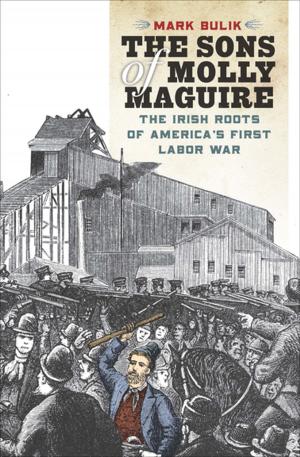The People's Right to the Novel
War Fiction in the Postcolony
Fiction & Literature, Literary Theory & Criticism, African, Nonfiction, Social & Cultural Studies, Political Science, International| Author: | Eleni Coundouriotis | ISBN: | 9780823262342 |
| Publisher: | Fordham University Press | Publication: | September 15, 2014 |
| Imprint: | Fordham University Press | Language: | English |
| Author: | Eleni Coundouriotis |
| ISBN: | 9780823262342 |
| Publisher: | Fordham University Press |
| Publication: | September 15, 2014 |
| Imprint: | Fordham University Press |
| Language: | English |
This study offers a literary history of the war novel in Africa. Coundouriotis argues that this genre, aimed more specifically at African readers than the continent’s better-known bildungsroman tradition, nevertheless makes an important intervention in global understandings of human rights.
The African war novel lies at the convergence of two sensibilities it encounters in European traditions: the naturalist aesthetic and the discourse of humanitarianism, whether in the form of sentimentalism or of human rights law. Both these sensibilities are present in culturally hybrid forms in the African war novel, reflecting its syncretism as a narrative practice engaged with the colonial and postcolonial history of the continent.
The war novel, Coundouriotis argues, stakes claims to collective rights that contrast with the individualism of the bildungsroman tradition. The genre is a form of people’s history that participates in a political struggle for the rights of the dispossessed.
This study offers a literary history of the war novel in Africa. Coundouriotis argues that this genre, aimed more specifically at African readers than the continent’s better-known bildungsroman tradition, nevertheless makes an important intervention in global understandings of human rights.
The African war novel lies at the convergence of two sensibilities it encounters in European traditions: the naturalist aesthetic and the discourse of humanitarianism, whether in the form of sentimentalism or of human rights law. Both these sensibilities are present in culturally hybrid forms in the African war novel, reflecting its syncretism as a narrative practice engaged with the colonial and postcolonial history of the continent.
The war novel, Coundouriotis argues, stakes claims to collective rights that contrast with the individualism of the bildungsroman tradition. The genre is a form of people’s history that participates in a political struggle for the rights of the dispossessed.















